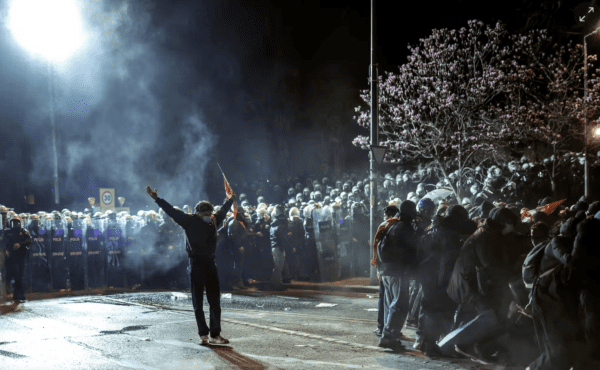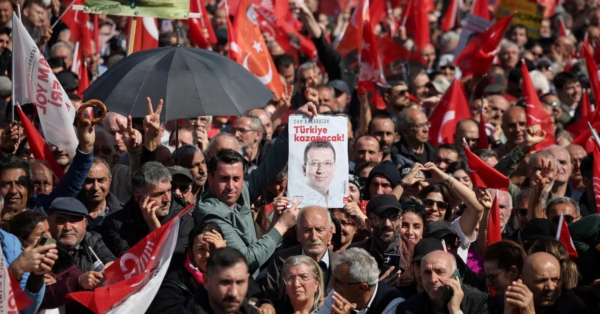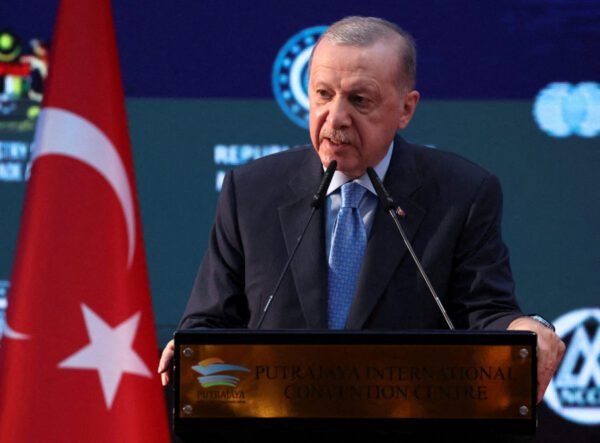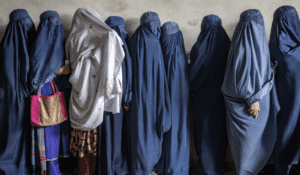A week of protests in Istanbul has seen thousands take to the streets after the mayor, Ekrem İmamoğlu, and the strongest political opposition to President Recep Tayyip Erdoğan were jailed on Wednesday, March 29. Imprisoned on corruption charges and accused of terrorism, İmamoğlu claims that his arrest is politically motivated; the arrest strategically took place just a few days before his party was expected to formally nominate him as their presidential candidate.
Despite the freedom of assembly being protected under the Turkish constitution, the Istanbul governor’s office has banned public protests and political demonstrations. This, however, has not stopped Turkey’s largest protests in over a decade from taking place. In just a week, 1,800 people have been detained, many of whom are students, journalists, and lawyers fighting for the future democracy of their country. The UN and rights groups have condemned the arrests and use of force by the police on protesters, which has included tear gas, water cannons, and rubber bullets.

Protesters try to avoid tear gas deployed by riot police at the protest. Source: Kemal Aslan/AFP/Getty Images
The main site of the protests, Taksim Square, has been closed off by police in an attempt to repress collective action efforts. The square, which sits in front of Istanbul’s city hall, and the surrounding area have been made difficult to access with the city’s busiest metro stations closed. The city in its entirety is difficult to access, with police checks on incoming vehicles, who are turning away anyone suspected of coming to protest.
Ousting mayors from power on charges of terrorism is not a new move from Erdoğan’s playbook. In 2024, the president charged three pro-Kurdish mayors with terrorism and had them replaced by state officials, seemingly threatened by their popularity.

Thousands of students have participated in the protests, with many choosing to cover their faces in fear of being identified by the police. Source: Reuters
If convicted of the corruption charges, İmamoğlu will be ineligible to run for president. The case’s evidence has yet to be officially disclosed, although many Turkish media outlets have reported that the case is built on “secret witnesses,” which is a commonality to previous cases against political opponents.
Apart from the convictions and arrest, efforts to remove İmamoğlu from contention were taking the form of discrediting his formal education. The day prior to the mayor’s arrest, pro-Erdoğan press declared İmamoğlu’s college degree invalid due to “irregularities” in his transfer from a private university. In Turkey, presidential candidates must have a university degree;; therefore, invalidating İmamoğlu’s degree would prevent him from running.
The president himself faces legal restrictions from participating in another election due to the two-term presidential limit stated in Turkey’s constitution. The only way in which he could legally stand for re-election is in the case of a snap vote or through a change of the constitution. Already, Erdoğan has held power for 22 years, first serving as prime minister, and has proven successful at maintaining his grip on power.

President Erdoğan has accused the opposition party of wrecking the country’s economy through protesting. Source: PBS News
The opposition party, the Republican People’s Party (CHP), is continuing to gain support, showing that the president’s oppressive strategy may be backfiring. Even in his absence, the CHP has declared İmamoğlu their presidential candidate following a nationwide symbolic vote on the weekend following his arrest (March 22-23), which saw close to 15 million people cast a ballot. The Turkish people refuse to give up on their country’s democracy and continue to protest. This Saturday, March 29,, hundreds of thousands have gathered once again in Istanbul, keeping hope for their future alive.
Featured image: A protest against the arrest of the mayor of Istanbul, Ekrem İmamoğlu, takes place on the outskirts of the city. Source: Chris McGrath






